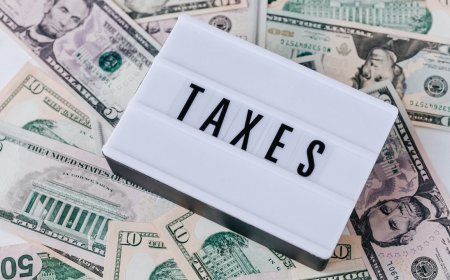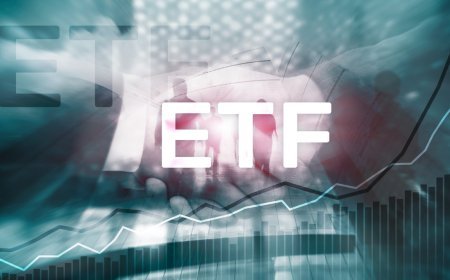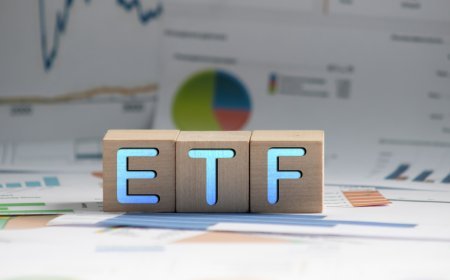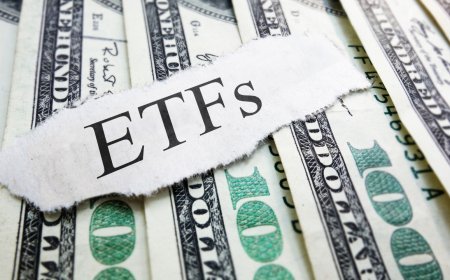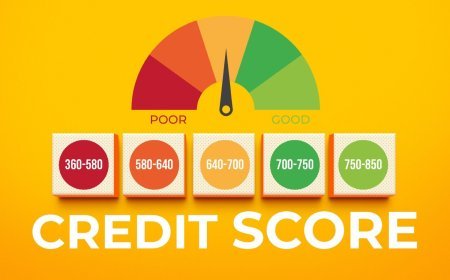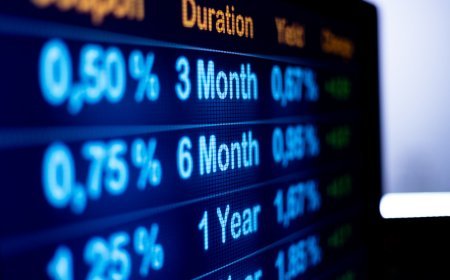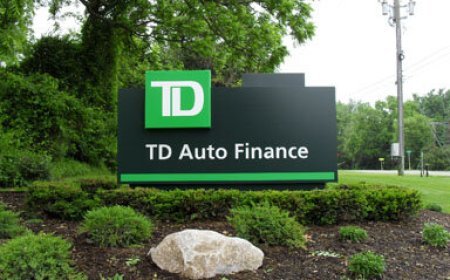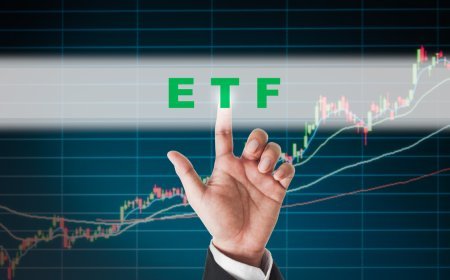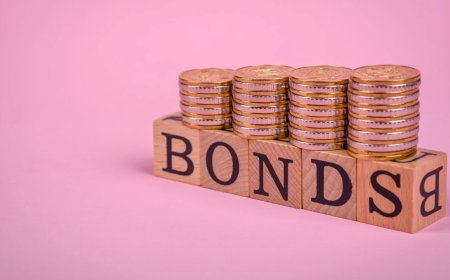Index Funds vs. ETFs for Retirement in 2025: Key Investor Insights
This article explores the differences between index funds and ETFs for retirement planning in 2025, offering insights to help investors choose the best option for their long-term financial goals. It covers key factors like costs, flexibility, tax efficiency, and suitability for retirement accounts, providing practical guidance for building a secure retirement portfolio.
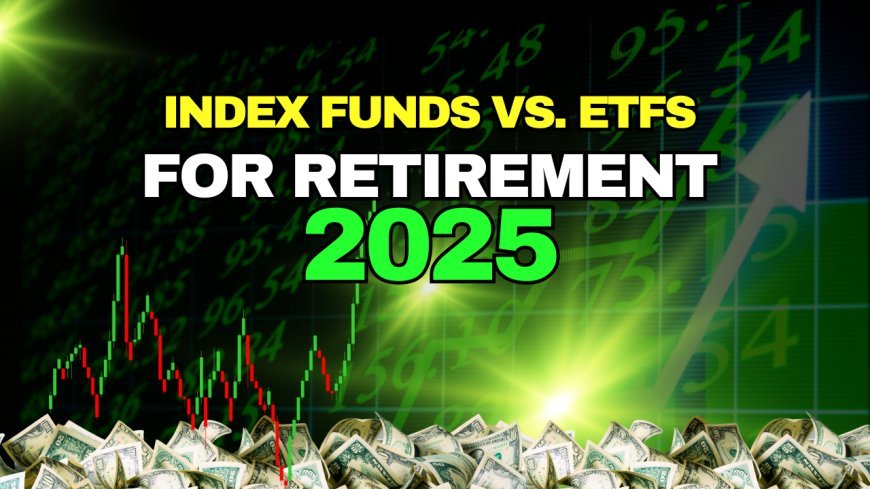
For investors planning for retirement, choosing the right investment vehicle is critical to building a secure financial future. Index funds and exchange-traded funds (ETFs) are two popular, low-cost options that offer diversification and long-term growth potential. But which is better suited for retirement accounts in 2025? This article breaks down the differences, advantages, and key considerations to help you make an informed decision for your retirement portfolio.
What Are Index Funds and ETFs?
Index Funds are mutual funds designed to replicate the performance of a specific market index, such as the S&P 500 or a total bond market index. They pool investor money to purchase a diversified portfolio that mirrors the index, offering steady, predictable returns over time.
ETFs (Exchange-Traded Funds) also track market indices but trade like stocks on an exchange, allowing investors to buy and sell shares throughout the trading day at market prices. They provide similar diversification but with added flexibility.
Both are excellent choices for retirement due to their low costs, broad market exposure, and simplicity, but their differences can impact their suitability for your retirement strategy.
Key Differences for Retirement Investors
1. Costs and Fees
-
Index Funds: Typically have low expense ratios, often ranging from 0.03% to 0.2%. For example, Vanguard’s Total Stock Market Index Fund (VTSAX) has an expense ratio of 0.04%. However, some funds may charge transaction fees or require minimum investments, which could be a factor in smaller retirement accounts.
-
ETFs: Also feature low expense ratios, sometimes even lower than index funds (e.g., Vanguard’s Total Stock Market ETF, VTI, at 0.03%). ETFs may incur brokerage commissions or bid-ask spreads, though many platforms like Fidelity or Charles Schwab offer commission-free trading in 2025.
Retirement Impact: In retirement accounts like IRAs or 401(k)s, where long-term growth compounds, even small differences in fees can add up. Both options are cost-effective, but compare specific funds’ expense ratios and ensure your platform minimizes trading costs.
2. Accessibility and Minimum Investments
-
Index Funds: Often require minimum investments, ranging from $500 to $3,000, though some brokers now offer no-minimum options or fractional shares. This can be a hurdle for new investors starting with limited funds in a retirement account.
-
ETFs: Have no minimum beyond the price of a single share, which can be as low as $10–$100 for popular ETFs like SPY or VOO. This makes ETFs more accessible for younger investors or those with smaller retirement contributions.
Retirement Impact: ETFs are ideal for those starting with modest contributions to a Roth IRA or 401(k), while index funds suit investors who can meet minimums and prefer simplicity.
3. Tax Efficiency in Retirement Accounts
-
Index Funds: Generally tax-efficient due to low turnover, but they may distribute capital gains annually in taxable accounts, triggering taxes. In tax-advantaged retirement accounts (e.g., IRAs, 401(k)s), this is less relevant since gains are deferred.
-
ETFs: Often more tax-efficient due to their in-kind redemption process, which minimizes capital gains distributions. In retirement accounts, this advantage is negligible, as taxes are deferred until withdrawal.
Retirement Impact: Since most retirement accounts are tax-advantaged, tax efficiency is less critical. Focus on funds with low turnover to minimize any hidden tax drag.
4. Flexibility and Trading
-
Index Funds: Purchased at the end of the trading day at the net asset value (NAV). They’re ideal for a hands-off approach, perfect for retirement investors who want to “set it and forget it.”
-
ETFs: Trade intraday, allowing for quick adjustments to market conditions. This flexibility is less critical for long-term retirement planning but can appeal to active investors.
Retirement Impact: Retirement investing prioritizes long-term stability over short-term trading, making index funds’ simplicity more appealing for most. ETFs may suit those who want to rebalance or adjust allocations more frequently.
5. Automatic Investing Options
-
Index Funds: Support automatic investment plans, allowing regular contributions (e.g., monthly deposits to an IRA). This facilitates dollar-cost averaging, reducing the impact of market volatility.
-
ETFs: Typically require manual purchases, which can disrupt consistent investing habits, especially for busy retirement savers.
Retirement Impact: Automatic investing is a major advantage for index funds, as it aligns with the disciplined, regular contributions common in retirement accounts like 401(k)s.
Advantages for Retirement Investors
Index Funds
-
Simplicity for Long-Term Planning: Easy to manage, requiring minimal monitoring, which suits retirement savers focused on decades-long growth.
-
Dollar-Cost Averaging: Automatic contributions make it easy to invest consistently, ideal for 401(k) or IRA contributions.
-
Broad Exposure: Funds like VTSAX or Fidelity’s FZROX provide comprehensive market coverage, reducing risk in a retirement portfolio.
ETFs
-
Low Entry Point: Affordable share prices allow younger or smaller-budget investors to start building a retirement portfolio early.
-
Diverse Options: ETFs offer exposure to niche areas (e.g., bond ETFs like BND or international ETFs like VXUS), enabling tailored retirement strategies.
-
Liquidity: Intraday trading allows quick adjustments, though this is less critical for retirement accounts.
Key Considerations for 2025 Retirement Planning
-
Retirement Account Type: In 401(k)s, index funds are often the default, with limited ETF options. IRAs offer more flexibility, allowing both. Check your plan’s offerings and fees.
-
Investment Horizon: Retirement investing spans decades, so prioritize funds tracking broad indices (e.g., S&P 500, total market) for stability. Both index funds and ETFs excel here.
-
2025 Trends: Rising interest rates or inflation in 2025 may favor bond or dividend-focused ETFs (e.g., SCHD) for income-focused retirees, while index funds remain strong for growth.
-
Costs Over Time: A 0.1% expense ratio difference on a $100,000 portfolio over 30 years could mean thousands in savings. Compare funds like VOO (ETF, 0.03%) vs. VFIAX (index fund, 0.04%).
-
Automation Needs: If your retirement strategy relies on regular contributions, index funds’ automation is a significant advantage.
Which Is Better for Retirement in 2025?
For most retirement investors, index funds are the better choice due to their simplicity, automatic investing options, and alignment with long-term, hands-off strategies. They’re particularly suited for 401(k)s or IRAs with regular contributions, making it easy to build wealth steadily through dollar-cost averaging. Examples like Vanguard’s VFIAX or Fidelity’s FZROX are hard to beat for cost and performance.
ETFs shine for investors with smaller starting budgets or those seeking flexibility to diversify into specific sectors, bonds, or international markets. They’re ideal for Roth IRAs or self-directed accounts where investors want to fine-tune allocations. For example, ETFs like VTI or VXUS offer low-cost, broad exposure with the ability to adjust quickly.
A balanced approach might involve using index funds for the core of your retirement portfolio (e.g., a total stock market fund) and ETFs to add targeted exposure (e.g., bond or international ETFs) as you near retirement. In 2025, prioritize low-cost, diversified funds to maximize returns while minimizing fees.
Conclusion
Both index funds and ETFs are powerful tools for retirement planning in 2025, offering low costs and diversification to secure your financial future. Index funds excel for simplicity and automation, ideal for consistent contributions in retirement accounts. ETFs provide flexibility and accessibility, perfect for smaller budgets or tailored strategies. Evaluate your retirement goals, account type, and investing style, and compare specific funds’ fees to make the best choice. Start early, stay consistent, and let time and compounding work in your favor.
For a broader comparison of these investment vehicles, check out our guide: Index Funds vs. ETFs in 2025: Best Choice for Beginner Investors.
What's Your Reaction?
 Like
0
Like
0
 Dislike
0
Dislike
0
 Love
0
Love
0
 Funny
0
Funny
0
 Angry
0
Angry
0
 Sad
0
Sad
0
 Wow
0
Wow
0

